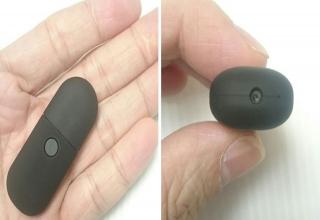Moving downtown in Tokyo
After all the stresses of finding an apartment, moving, white goods and furniture shopping all while trying to entertain bored children and struggling understand what's being said in Japanese (so my wife doesn't have to translate everything shortening her already limited fuse) I finally have an internet connection (this being Japan they claim 1000Mbps, but given the equipment at either end it's unverifiable and quite frankly faster than anything I need).
We have moved to a type of apartment called a 'mansion' in Japan. This seems to mean an apartment in a block (building 5 or more stories high), where bedrooms and living area are seperate, but solid definitions are hard to find. Apartments in smaller blocks, or smaller apartments, tend to be called 'aparto', the Japanese appropriating English vocabulary and moulding it to their own sensibilies as is there wont. The Japanese word for mansion (in the English sense) is Yashikki, and they are quite amused when I tell them that 'mansion' means 'yashikki'.
Our new home is in a downtown area, which I really like - full of little stores, restaurants and strange (for a gaijin (foreigner) like me) little workshops and temples. Almost opposite our building is a tiny wooden house where a crastsman weaves tatami (the woven grass floor covering that is traditionally used in Japanese houses). We have one tatami room (it's actually a very comfortable floor covering, designed for sleeping on as well as everyday use - the bedding is simply pulled out from a cupboard and tidied away each morning), although mostly the apartment has laminate flooring. There is also a large store (one of the Jusco chain) five minutes walk away, that is sort of a cross between a department store and a supermarket.
The road outside our front door is the old tokkaido, which used to be the main road between Edo (the old name for Tokyo) and Kyoto (which was the Imperial capital). Of course there is now a modern multilane highway between the two cities, and the old road is small and little used, but there is a profusion of temples (Buddhist religious buildings) and shrines (their Shinto counterparts) often of impressive size and magnificent decoration along the old highway.
When moving in, we introduced ourselves to our neighbours with small gifts of cakes (custard cream sponge cake called tsuki no hagi - a speciallity of my wife's home town) which are given with suitable deprecating remarks asking their pardon for such inconsequential gifts. The Japanese are almost unfailingly polite, apologising to each other at the slightest problem (indeed the language itself is so much entwined with their ideas of manners that a considerable part of the grammar is concerned with establishing social position and levels of politeness) to such an extent that Japanese travelling abroad have to be cautioned against their instinct to apologise in the event of a car (auto) accident as outside Japan apology can be construed as an admission of liablity. However our building manager is the first outright rude Japanese I have come accross - He responded to our little gift with hardly a scowl and a warning to send all deliveries to the side entrance (rather than the profuse thanks called for (by convention the giver minimises the importance of the gift, the receiver should maximise it unless there is a huge difference in social status), and has argued with the men delivering our furniture, the men delivering our electrical goods and the men who connected our phone (I have actually been about a week longer sans internet than I needed due to his intransigence). Three arguments in two weeks that are the first I have seen in almost a year of living here.
After my last blog quite a few people asked about food and drink here (a subject close to my heart) so I promise to write about them next time.






3 Comments